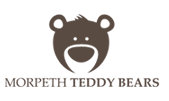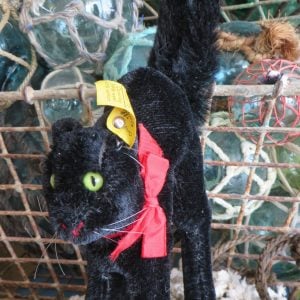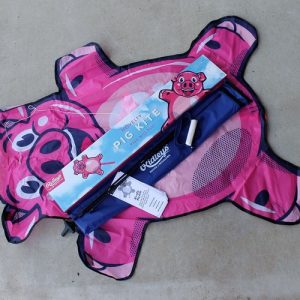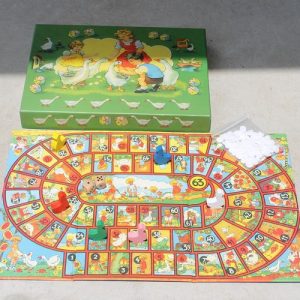Kewpie Doll – Rainbow
$25.00
Description
Kewpie attaches onto a straight cane with two elastic bands around her head and ankles. Cane measures approximately 60cm in length.
Original Kewpie Co. Doll on a straight stick. (Attached with a rubber band.) Because these Kewpies are all hand finished, every doll is different. You will receive a Kewpie the same or similar to this. Kewpie’s glittery costume colour varies. Kewpie is fondly remembered as a show or carnival doll in Australia. Below is a little history of Kewpie.
Kewpie at the Royal Easter Show
Tony Faiella started a family Novelty business which has been passed down through his family generations for over 80 years. Due to its unfortunate closure, James, the great great grandson of Tony, relaunched the ‘Kewpie Doll on a stick’ business that all the fun started with. James spent his whole life around the shows, the stores and the family Kewpie Doll production line. He remembers playing amongst metres and metres of tulle in the family factory at Glebe, (which included Faiella’s, Hobday’s and Stringer’s), where the dolls tutu’s were lovingly sewn by family members & employees (known as aunties) sitting at their Singer sewing machines. “We would sometimes play under the tulle like a cubby house, invariably always getting in trouble for it.” James recalls, there were tables set up with all types of coloured glitter, diamontes and feathers, ready for Kewpie doll painting, dipping or feathering. James loves nothing more than hearing childhood memories of adults, who treasured Kewpie dolls they received on a visit to the Show.
Kewpie started out as a doll pictured in a comic strip in vintage women’s magazines back in the 1900’s. She was a symbol of innocence and love. Kewpie was always getting people out of trouble and consistently seen battling injustice or simply making the readers of the magazine laugh. Rose O’Neill’s Kewpie Doll comic strips grew so popular around 1912 that she began to sell paper dolls in their image that she illustrated herself and called ‘Kewpie Kutouts’, which were paper dolls printed on the front and back that were accompanied with stories. Their popularity let to actual dolls being produced.
The first Kewpie Dolls were made from bisque porcelain, in various sizes between one and twelve inches, with a red heart on their chest, and sold without any clothing, looking just like the comic character. Sold internationally, the Kewpies became immensely popular over the next two years. The dolls and their images began to feature in advertising and provide a theme for other memorabilia.
From 1915 Kewpies were made from a composition material. Smaller, skinnier versions of Kewpie emerged in the 1920’s and started the trend of giving out Kewpies as carnival prizes. These dolls were made from celluloid with no heart printed on the chest. They were around 15cm tall and had iconic gold hair, red lips and big black eye lashes. These dolls were based on the ‘Marcella kewpie’, a flapper girl Japanese version of Rose O’Neill’s cow licked, rolly poly original. This is where James’ family the Faiella’s joined in Kewpie doll history.
The Faiella’s are famous for importing this Japanese style of doll into Australia, decorating and selling them. As time moved forward import came from Taiwan, when factories moved there and now days China.
Two and a half years after the Wall Street Crash of October 1929, James’ great great grandfather, an Italian immigrant from Sorrento, opened a small Novelty and giftware shop by the name of “The Novelty Supply Store” on the 19th March, 1932 at 480 Pitt Street, Sydney, under the arches of Sydney’s Central Station. He cleverly timed the opening of the family business to coincide with a massive historic event that was to occur in Sydney on that same day…the opening of the Sydney Harbour Bridge. Half a million people were in the city to experience the event.
The Novelty Supply Store was successful, selling spinning tops, wooden cars, sewing kits, comb sets, and unique inlayed wooden pens – all imported from Japan, and at the time considered unusual items. At the end of WWII, the business expanded, supplying customers from the Sydney Royal Easter Show, Capital Shows & Country Shows Australia wide. The Novelty Supply Store started building a strong presence within the carnival scene, known for its supply of toys and wooden pens, bamboo canes, organza and tulle – the craft items that were used for the manufacture of Kewpie Dolls.
James’ grandmother handcrafted the famous Kewpie Dolls or ‘dolls on sticks’, dressing them in glitter and tulle tutus and attaching them to bamboo canes, sending them all over Australia to shows country wide. Many boys and girls came home with a Kewpie on a stick, some with glitter, some with fancy tulle tutus and some with trimmings of bows, flowers, crowns and feathers. If you didn’t win one, the elaborate ones were quiet expensive to buy in their time. Many a nostalgic baby boomer commenting that they were only allowed a Kewpie every second visit to a show with their mum and dad.
The Original Kewpie Doll is uniquely Australian and it is an Australian tradition to make tulle tutu skirts for this particular style of Kewpie Doll. During the 1960’s the Faiella family remained in the carnival scene, packing and selling Arnott’s show bags at various shows, while they also had several stalls of their own where they sold Magic show bags, Lavender House bags and Dolls on a stick from The Pink Doll House stand. The iconic Kewpie Doll also represented Australia during the closing ceremony entertainment of the 2000 Olympic Games in Sydney. Now almost 20 years later, she is back!
James and his partner Jorgie modernised Kewpie to take her into the future. Mimicking James’ Nan’s designs and coming up with new designs of their own, look for her gold shoes. They are the signature of the Original Kewpie Co brand of doll. Buy them naked or dressed up in glitter with tulle skirts. Relive your childhood, introduce a new generation to much loved Kewpie.
In 2022 James & Jorgie sold their Original Kewpie Co. business to Lisa who continues to make Kewpie in the tradition of the Faiella family.






